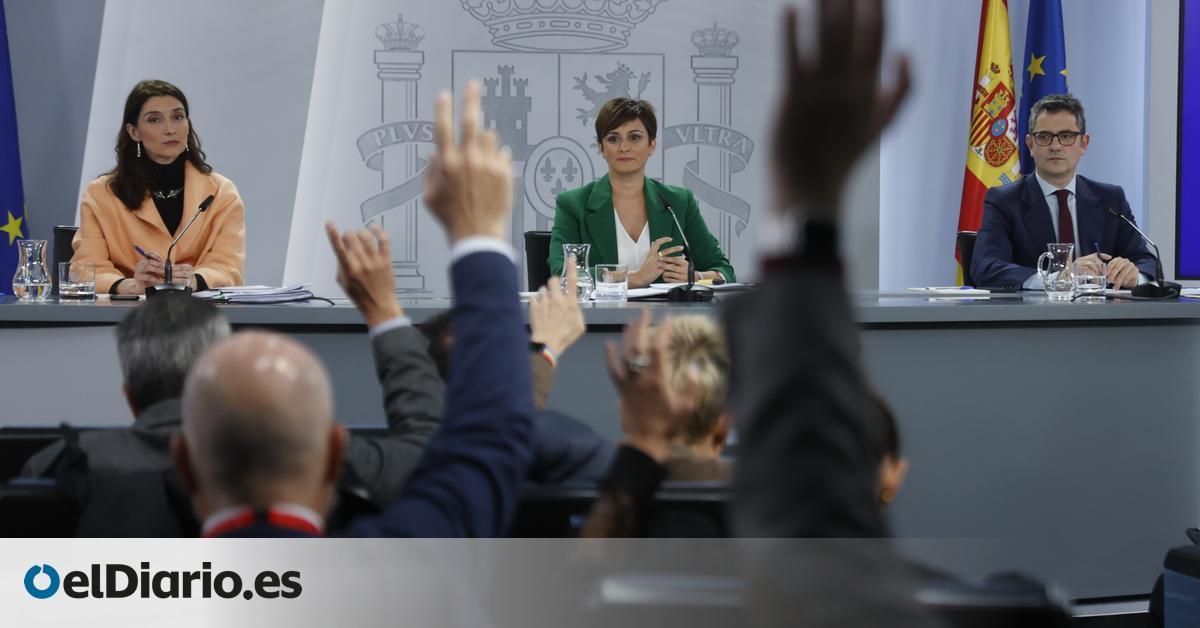
The European Commission wants common minimums for the fight against corruption and has proposed a directive in which it establishes minimum maximums for criminal types such as embezzlement, bribery, obstruction of justice or influence peddling. Although it is in a very early phase, given that the regulations will now have to be negotiated with the European Parliament and the 27, the proposal would force Spain to toughen the penalties for embezzlement since it is, for some cases, below the standards it proposes Brussels.
The truths and lies about the reform of the crime of embezzlement
Further
Thus, the text approved this Wednesday by the College of Commissioners establishes a maximum penalty of at least five years in prison for conduct classified under the heading of embezzlement, which it defines as “the commission, disbursement, appropriation or use by a public official of assets whose management has been entrusted directly or indirectly against the purpose for which they were intended. Under this umbrella the specificities of the Spanish Criminal Code fit, despite the fact that Brussels does not make distinctions between whether there has been personal enrichment or not, or if the funds were used for a purpose other than that initially intended.
Those were the nuances that the PSOE and Unidas Podemos introduced with the reform agreed last December with the ERC to reduce the penalties for embezzlement that affects the Catalan leaders for the organization of the 1-O referendum. And the maximum sentences collected in these cases are three and four years. If it enters into force in the terms in which it is drafted, Spain would have to raise these penalties to five years.
However, Brussels has not specifically ruled on this reform, although the Justice Commissioner, Didier Reynders, assured that he is “analyzing” it with the aim of concluding “if it is compatible with community law in regard to the interests EU financiers. The conclusion in this regard is expected for the next report on the rule of law in Spain that the Commission will publish next July.
Brussels also proposes that the maximum sentences of six years in prison for other crimes such as bribery. In this case, Spanish legislation is consistent. It also establishes five years in the case of bribery in the private sector, influence peddling and abuse of power and four years for illicit enrichment related to corruption.
“Corruption is like cancer”, said the Vice President for Values and Transparency, Věra Jourová, at the presentation of the package: “We have to improve prevention”.
The intention of the European Commission is to harmonize the types of crime and establish minimum maximum sentences for corruption which, according to its calculations, supposes a cost for the European economy of 120,000 million euros per year. Hence, the directive that he presented this Wednesday was one of the star proposals of the president, Ursula von der Leyen, during the last debate on the State of the Union last September.
“I would like to focus on corruption in all its faces. The face of foreign actors trying to influence our political system. The face of dark companies and foundations that abuse public money. We also have to eradicate corruption at home. That is why we are going to present measures to update our legislative framework in the fight against corruption,” said the German in Strasbourg.
A sanctions regime for corrupt foreigners
In addition to forcing the adaptation of the criminal laws of the 27 -some countries will have to make modifications, such as the inclusion in 17 states of the concept of illicit enrichment or in two of them the introduction of influence peddling-, Brussels wants to reinforce the fight against the entry of corrupt within its borders. Thus, the high representative, Josep Borrell, has proposed a specific sanctions regime to fight against serious acts of corruption in third countries around the world that will lead to the prohibition of entry into the EU for the perpetrators and partners of serious acts of bribery and embezzlement as well as the freezing of their assets.
“We are sending a clear message: the EU is not open to business for those who engage in corruption, wherever it occurs,” said the Catalan politician, who has estimated that corruption accounts for 5% of world GDP that ” undermines democracy, the rule of law, human rights, international peace and security and sustainable development, while also hindering the achievement of the SDGs, in Europe and around the world.”
Source: www.eldiario.es

